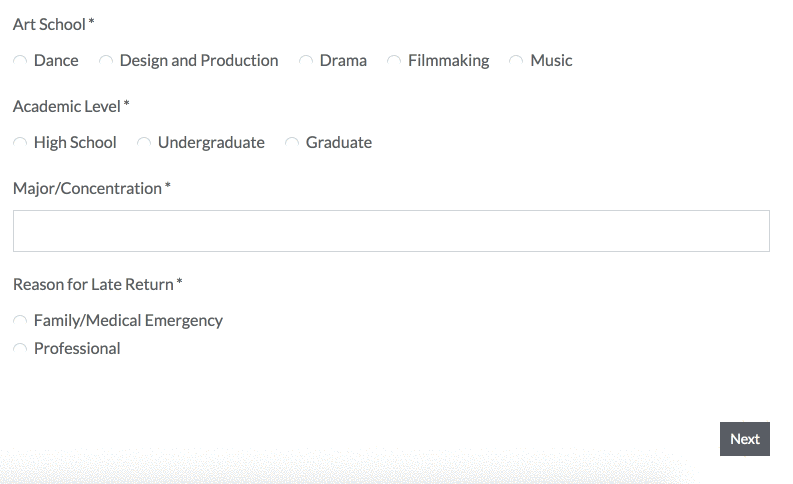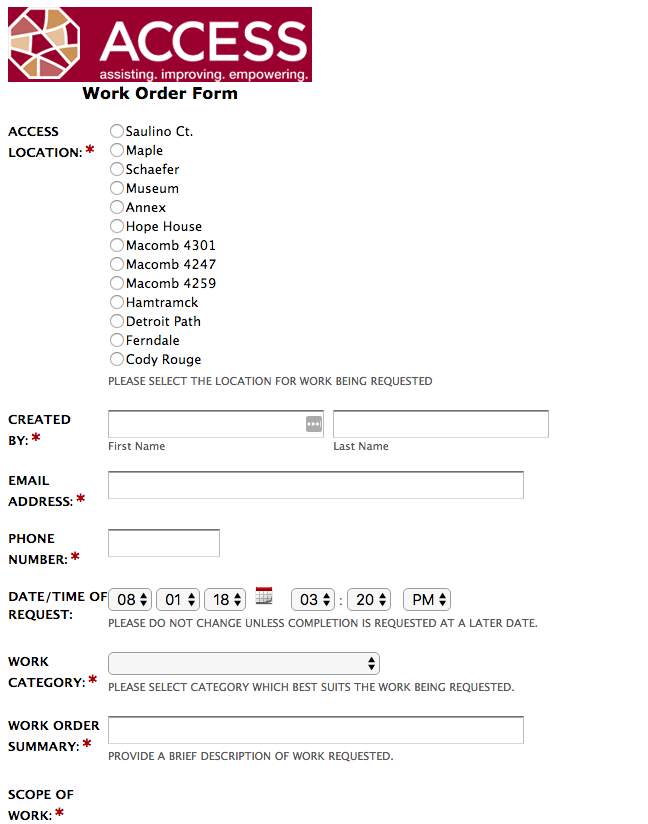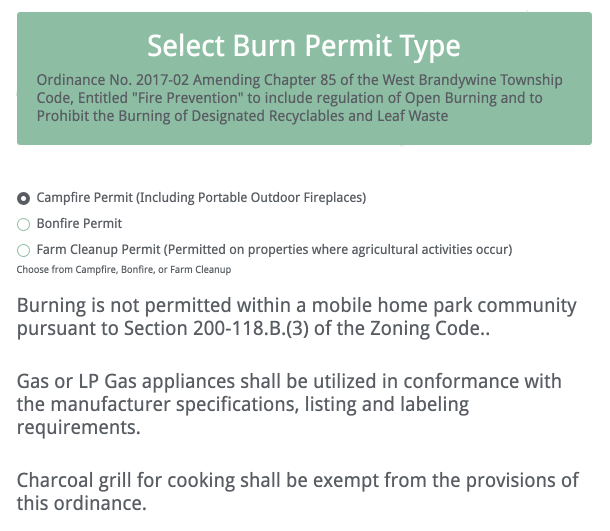Thousands of organizations across various industries use Formstack to streamline business processes. We love hearing all the ways customers manage their business processes with online forms.
We recently heard from three public service organizations that all use Conditional Logic to accelerate their workflows and save valuable time. From approval forms to work orders to burn permits, these organizations highlight the various ways Conditional Logic can improve workflow management.
University of North Carolina School of the Arts
The University of North Carolina School of the Arts is a top-ranked creative and performing arts conservatory for high school, undergraduate, and graduate students. Returning to campus for each new semester is full of process for students and administrators alike. One of the more burdensome processes was the late return approval request.
Before Formstack, the late return to campus form was a PDF that was physically passed from the student to two different deans for signatures, and ultimately, hand-delivered to the Registrar's Office for record keeping.
With Formstack, the administrators at UNCSA created a form that automatically routes the approval request to the appropriate parties based on certain information entered on the form. Formstack’s Conditional Logic feature streamlined the entire process, ensuring all relevant information is gathered, reducing the approval time from a couple weeks to a few minutes.

ACCESS
ACCESS is the largest Arab American nonprofit in the United States. The organization has seven facilities and more than 120 programs serving metro Detroit. ACCESS maintains the upkeep for all its facilities, and before Formstack, the organization used a group distribution email to gather work order requests. According to Facilities Director Mark Paul, “The system was inefficient and confusing.”
With Formstack, ACCESS was able to add email routing based on Conditional Logic. Instead of digging through emails to determine who needs to address which work order, a confirmation email is sent to the appropriate contact based on which work category is chosen. As a result, the work order process was significantly improved, and the average completion time decreased from two weeks to just two days.

West Brandywine Township
Situated between the east and west branches of the Brandywine River in Pennsylvania, West Brandywine Township is known for its scenic landscapes and expansive farmland. The local government manages the allocation of burn permits. Residents can apply for three different permit types: Campfire, Bonfire, and Farm Cleanup. Each burn permit has a different set of terms and conditions to which applicants must agree.
West Brandywine Township uses Formstack’s Conditional Logic feature to automate its messaging. For example, the organization added Conditional Logic rules to the different burn permit types, so the form only displays the terms and conditions associated with the type of permit requested. Now, end users only see the information specific to their request, and West Brandywine Township saves time by automating the messaging.

Conditional Logic is just one powerful feature of Formstack Forms. Start your free trial now to see how you could start transforming processes at your organization.











